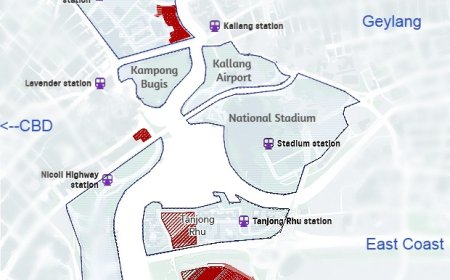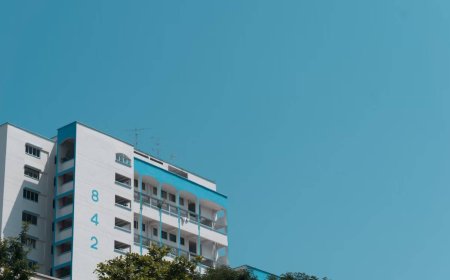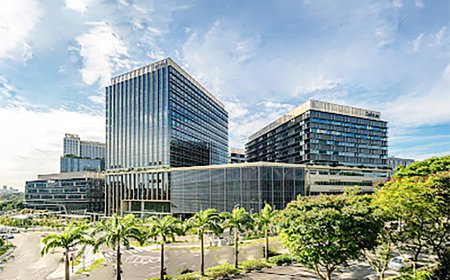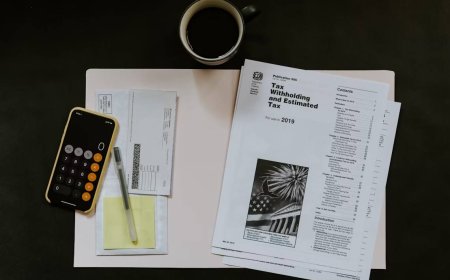How Do US Federal Reserve Interest Rate Changes Impact Mortgage Rates in Singapore?
Explore how changes in US Federal Reserve interest rates impact Singapore’s mortgage rates via SORA, affecting monthly repayments, loan eligibility, and refinancing strategies in 2025.

In late 2024, the US Federal Reserve (Fed) reduced its benchmark interest rates for the first time since 2020, with cuts announced in both September and November. These adjustments followed a prolonged period of rate stability since mid-2023 and marked a significant shift from the aggressive rate hikes initiated in 2022 to counter inflation after the COVID-19 pandemic. The Fed funds rate currently rests in the 4.5% to 4.75% range, down from the 5.25% to 5.5% levels seen earlier in 2024.
This development has sparked questions among Singaporean homeowners and prospective buyers regarding the implications for local mortgage interest rates and monthly repayments. This article explores the relationship between Fed interest rates and mortgage rates in Singapore, the role of Singapore’s key benchmark rate — the Singapore Overnight Rate Average (SORA) — and practical advice on how homeowners can benefit from a shifting interest rate environment.
Understanding the Link Between US Fed Rates and Singapore Mortgage Rates
Unlike central banks in other countries, the Monetary Authority of Singapore (MAS) does not directly set interest rates. Instead, MAS manages Singapore’s monetary policy primarily through exchange rate adjustments. Despite this, Singapore’s financial markets and borrowing costs remain sensitive to global interest rate movements, especially those set by the US Fed, given the US dollar’s status as the global reserve currency.
Singapore home loans, particularly those with floating interest rates, are predominantly priced against the SORA, which reflects borrowing costs in the local Singapore dollar unsecured overnight interbank cash market. Published daily by MAS, SORA is a volume-weighted average rate based on actual market transactions and has been the benchmark for pricing most new Singapore-dollar loans since 2022.
While SORA is fundamentally a domestic benchmark, it is indirectly influenced by US Fed rate decisions through global liquidity conditions and cross-border capital flows. Consequently, when the Fed cuts rates, Singapore’s borrowing costs, including mortgage rates linked to SORA, tend to follow suit — albeit with a lag and at varying degrees of sensitivity.
Observing Fed Funds Rate and SORA Movements
Historical data from 2023 illustrates the relationship between the Fed funds rate and the 3-month compounded SORA rate:
| US Fed Meeting Date | Federal Funds Rate (%) | 3-Month Compounded SORA (%) (Following Day) |
|---|---|---|
| 1 Feb 2023 | 4.50 to 4.75 | 3.1525 (2 Feb 2023) |
| 22 Mar 2023 | 4.75 to 5.00 | 3.4394 (23 Mar 2023) |
| 3 May 2023 | 5.00 to 5.25 | 3.6076 (4 May 2023) |
| 14 Jun 2023 | 5.00 to 5.25 | 3.6501 (15 Jun 2023) |
| 20 Sep 2023 | 5.00 to 5.25 | 3.7059 (21 Sep 2023) |
| 1 Nov 2023 | 5.00 to 5.25 | 3.7556 (2 Nov 2023) |
| 13 Dec 2023 | 5.00 to 5.25 | 3.7462 (14 Dec 2023) |
SORA tends to be less volatile than the Fed funds rate, anchored to actual market transactions rather than policy announcements alone. Therefore, changes in SORA rates following Fed decisions tend to be gradual and measured rather than abrupt.
What Does This Mean for Singapore Homebuyers and Homeowners?
With the Fed expected to cut rates further in 2025, Singapore mortgage interest rates — especially those pegged to SORA — are anticipated to trend lower. This shift presents significant implications:
1. Lower Monthly Mortgage Repayments
A reduction in interest rates directly translates into lower monthly repayments for home loan borrowers. For example, on a $1.5 million home loan over 25 years, a 1% drop in interest rate (from 3.4% to 2.4%) could reduce monthly repayments by approximately $775 — a substantial saving over the loan tenure.
2. Improved Loan Eligibility
Banks use a “stress test” interest rate (currently set at a minimum of 4% by MAS) to evaluate borrowers’ ability to service loans in scenarios of rising interest rates. When actual interest rates decline, banks often lower this stress test rate accordingly, enabling borrowers to qualify for higher loan amounts under the Total Debt Servicing Ratio (TDSR) framework.
For instance, if the stress test rate drops from 4.85% to 4.4%, a borrower with a $10,000 monthly income could see their maximum eligible loan amount for a resale private property rise from approximately $1.04 million to $1.10 million.
How to Capitalise on Falling Mortgage Rates
Homeowners with floating-rate mortgages may benefit immediately from rate cuts, but those on fixed-rate loans should consider refinancing to lock in the lower rates.
However, deciding whether to refinance immediately or wait for potentially lower future rates involves balancing possible savings against costs and risks. For example:
-
Refinancing now at a 2.4% rate on a $1.5 million loan could save approximately $3,100 by March 2025 compared to a 3.4% rate.
-
Waiting for rates to fall below 2.3% before refinancing to achieve equal savings may be risky, as rates might not decline sufficiently or may rise again.
To maintain flexibility, borrowers might opt for loan packages with shorter lock-in periods or those offering free switching options, allowing them to respond to rate movements effectively.
Final Thoughts
While the Monetary Authority of Singapore manages monetary policy uniquely, global interest rate trends, particularly US Fed decisions, exert significant influence on local borrowing costs through SORA. Borrowers should stay informed of these developments and consult mortgage specialists to make timely and strategic financing decisions.
Algene Toh
Disclaimer: The information presented on BSR2.com is intended for general informational purposes only. It does not constitute legal, financial, investment, or real estate advice and should not be relied upon as such. While every effort has been made to ensure the accuracy, reliability, and completeness of the content at the time of publication, all data is derived from publicly available sources and may be subject to change without notice. BSR2.com makes no representations or warranties of any kind, express or implied, regarding the suitability, timeliness, or accuracy of the information provided for any specific purpose. Users are strongly encouraged to seek independent advice from qualified professionals before making any decisions based on the content found on this website. BSR2.com shall not be held liable for any loss, damage, or consequence, whether direct or indirect, arising from the use of or reliance on the information provided. The content is intended as a general guide and does not take into account individual circumstances.
What's Your Reaction?
 Like
0
Like
0
 Dislike
0
Dislike
0
 Love
0
Love
0
 Funny
0
Funny
0
 Angry
0
Angry
0
 Sad
0
Sad
0
 Wow
0
Wow
0












































